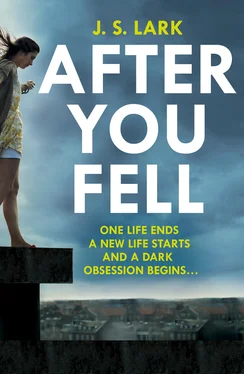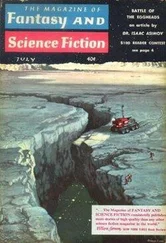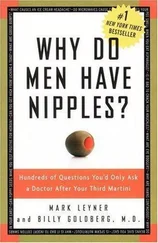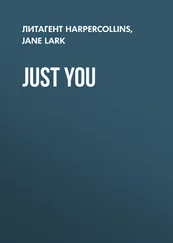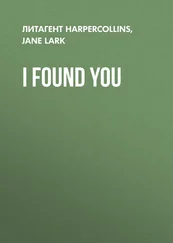Alex.
The man’s hair is a riot of messy curls like the boy’s. The same curls are looser in the girl’s longer hair. Louise did not have curly hair.
Was she married when she died?
It is obvious she married at some point because her surname was different from her parents’ but this is the first hint of a partner being involved in her life.
The man’s left hand is hidden. I can’t see if he’s wearing a ring. But even if she was married a year ago she might have been divorced or separated by the time she died.
I want to know more about this. Frustration grips at me, more a feeling in my stomach than my heart, a feeling that is my desire, not Louise’s.
I open Google on my phone and type, ‘Alexander Lovett’. Frustration switches to urgency that might be Louise’s.
The surname is worth a try.
Images of the children flood my head as the heart pulses faster.
The usual social media search links come up. But there’s something different amongst the links; the word photographer appears again and again. I click to the second page of links and ‘ Alexander Lovett photographer’ appears in the text under nearly every link.
‘Alexander Lovett on The Perfect Image’ , one of the links says in the heading. It is posted on a country-living magazine website. I click on that. The article is full of beautiful images of the city of Bath. The back arrow returns me to the search results. I want to find his business link.
www.AlexanderLovettPhotography.co.uk.
Click.
The website displays a clean-edged contemporary style. The Instagram link takes me to post after post of pictures of beautiful places, people and nature. There are no pictures of him or anything personal.
I go back and click the Facebook link to a business page that I Like before scanning through the same professional images. There’s nothing personal on here either.
I want a picture of him so I can tell if this photographer is the father of Louise’s children.
There is an About us tab on the website. Click.
The Team, it says at the top of the page, and beneath the heading, centre screen, there is a picture of Alex Lovett. He has tight curls in his blond hair.
He’s looking into the camera lens in a way that communicates with the person behind the camera. His eyes, which I imagine are blue in some lights but are pale ice-grey in this image, are bright and full of an expression that tells me a moment after the camera has clicked he’s spoken.
I feel as if Louise is staring at him through my eyes. The energy in my heartbeat has stalled as she stares, the pulse weakening.
He’s remarkable. The sort of man I would look at if I walked past him in the street. The sort of man any woman who liked men would look at if they walked past him in a street.
Very little is written beneath his image, just information about his professional capability and achievements.
Louise lived with this man. If not at the point she died, for years at least, because they had children.
There is a Contact us tab at the bottom of the webpage.
The studio address is in the city of Bath. By train, Bath is about half an hour further on from Swindon.
The business is a limited company; it will be registered with Companies House. The registration might record Alex’s home address.
The site shows a correspondence address in Bath that is different from the studio’s address.
The phone drops out of my hand onto the duvet. Instead I pick up the laptop. This needs a bigger screen and Google Earth. As the lid lifts the screen comes to life. I glance over to get the address and type it in.
It looks like a residential street.
I drag the yellow Plasticine-like man, that reminds me of Morph , over the screen, waving his legs, and put him down in the street then turn the camera to the houses. It is a house. Definitely. Not an office. I move the camera shot looking at the numbers on the doors. When I find number twenty-two, it shows curtains in the windows, a vase and other ornaments on the windowsills. The house looks lived in, not worked in.
Is this where Louise lived with the children? Perhaps she was inside this house when the Google’ street pictures were taken.
The Companies House information on my phone shows Alex Lovett’s age. He is four years older than me. His birthday is the same month as mine, but I am Aquarius and he’s Pisces.
My legs cross underneath the laptop as my heart jumps with excitement. My excitement, at the success.
This is a breakthrough.
The glossy white door with the fox-head knocker and the brass number twenty-two is in front of me, staring at me from across the street.
The only difference in the view I am looking at, compared to the day Google’s street view captured this image, is that there are no flowers planted in the boxes attached to the railings in front of the house. In the Google image, this house has full flowerboxes bursting with scarlet-red pelargoniums, white euphorbia and trailing ivy. But now, they have all gone.
I think this is the door that Louise Lovett walked in and out of day after day. The door to her home.
I feel as though she’s holding her breath, waiting and watching inside me, with fear and hope. I know she wants me to be here, but I do not know what she wants me to do.
I lean back against the cast-iron Georgian railing that edges the park on the opposite side of the street from the house. The action crushes the rucksack hanging from my shoulder. The rucksack contains a raincoat and umbrella. But today the rain has stayed away.
The five-foot-high iron bars of the railings are topped by pointed fleur-de-lys shapes and so my head rests against a sharp cold fleur-de-lys design. One foot lifts to settle on the stone that the ironwork is embedded in.
This is an old street. In the park behind me are half a dozen plane trees with broad shady canopies and thick trunks over a metre in diameter. The trees must have been planted around the time the houses were built. The park was made to be a garden for the rich who lived in these houses in the eighteenth and nineteenth centuries. The people who live here today must appreciate it even more because there’s a road behind them, and a supermarket beyond that.
I glance at the watch on my wrist then look back at the door, breathe in then exhale slowly. I have been standing here for twenty-two minutes and there’s been no movement in the house.
The street has a dead end, so even though on the other side of the park there’s a noisy main road, here there are no people or traffic, just parked cars and closed front doors.
My foot slips off the stone and I walk forward with a sudden urge to respond. It’s not a choice to move, it’s a need. Louise’s impatience, not mine.
I cross the road, mount the pavement, walk up to the door and grip the doorknocker. The brass fox-head drops onto the metal plaque with a heavy clang. I lift and drop it again.
I need to know if there’s life in this house – if the children are here.
Louise wants whatever she has brought me here for to begin.
The button of a modern doorbell is on the doorframe on the left, as though it’s hidden to prevent it spoiling the appearance of the frontage. I press that, holding it down for seconds. The property is five floors tall, including the windows of a cellar in the area behind the railings.
I step back so I can look at the windows, trying to see someone moving in the house.
One thing is obvious about Alex Lovett: he has a good amount of money; he must do otherwise he would not be able to afford to live in this property.
Читать дальше
